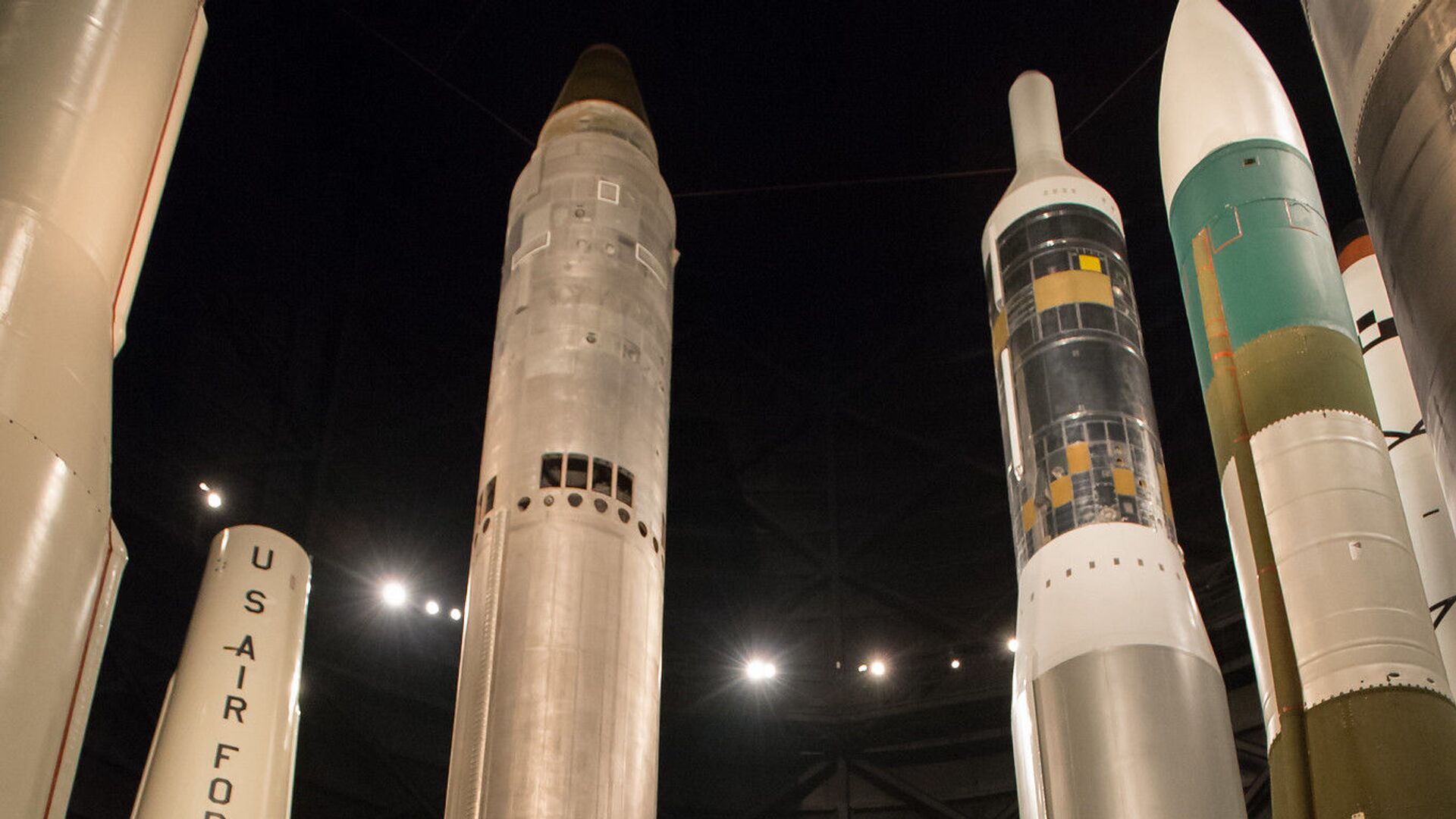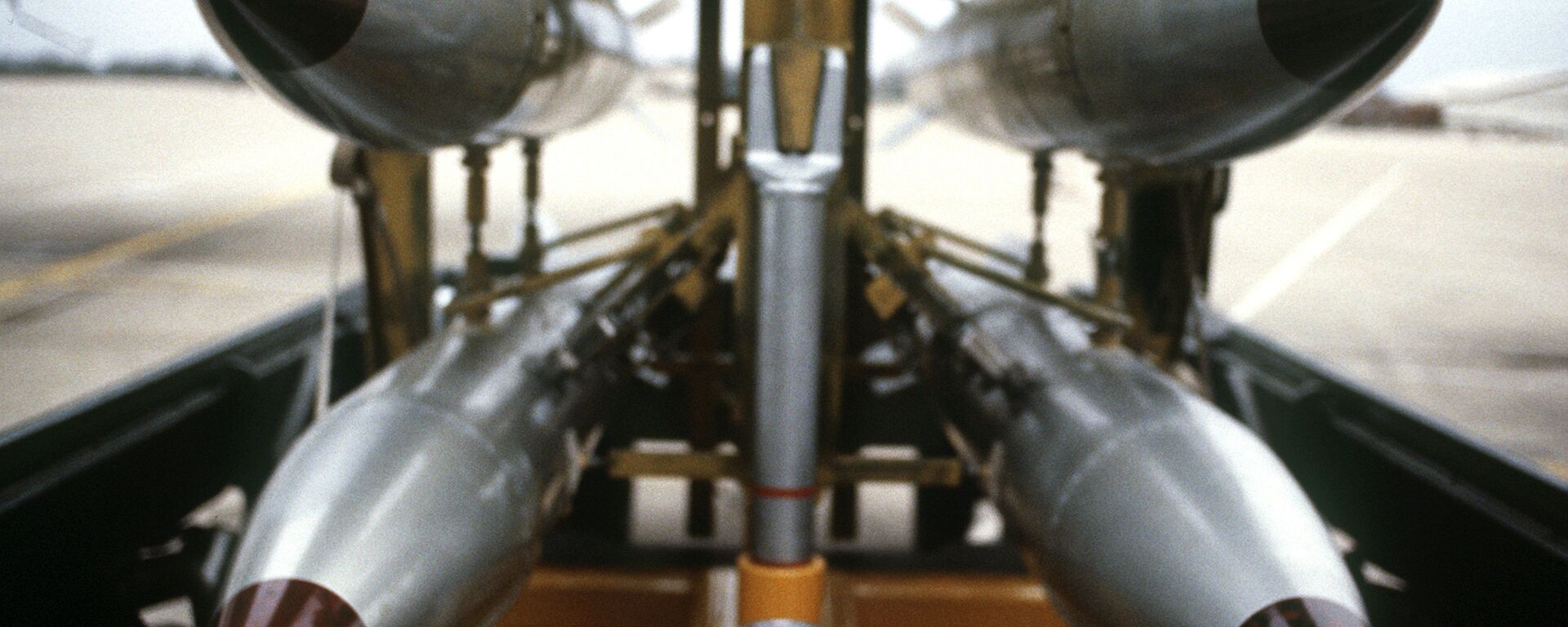https://sputnikglobe.com/20240607/us-taking-more-competitive-approach-to-nuclear-arms-control-1118850139.html
Chinese Embassy Says Ready to Maintain Close Talks With Parties on Arms Control Issues
Chinese Embassy Says Ready to Maintain Close Talks With Parties on Arms Control Issues
Sputnik International
The US is taking a more competitive approach to nuclear arms control and non-proliferation amid a changed international environment and active development of arsenals by Russia, China and North Korea, the White House National Security Council’s Senior Director for Arms Control and Nonproliferation Pranay Vaddi said on Friday.
2024-06-07T17:05+0000
2024-06-07T17:05+0000
2024-06-27T04:42+0000
military
us
russia
china
north korea
arms control association (aca)
us nuclear weapons
nuclear arsenal
nuclear weapons
republic of china
https://cdn1.img.sputnikglobe.com/img/107701/64/1077016433_0:56:1363:823_1920x0_80_0_0_7c894cc021ba545940aae08597b6acdf.jpg
The Chinese Embassy in Washington told Sputnik in light of US efforts to resume dialogue with Beijing on arms control that it has never been part of any form of an arms race and it stands ready to engage in close consultations with partners to address this issue. Earlier in the day, White House National Security Council Director for Arms Control, Disarmament and Nonproliferation Pranay Vaddi said the United States is open to seeing an arms control proposal from China, but that Beijing has rejected US efforts to hold further dialogue on this issue after they last held talks in December.“We've adjusted our strategy to account for a more complex and worsening security environment, but we are in no way abandoning our principles. We are taking a more competitive approach,” Pranay Vaddi said during an Arms Control Association annual meeting.Vaddi also noted that the US may get to a point where it will be necessary to increase its current nuclear arsenal deployment numbers.The official went on to say that the prospects for strategic arms control between the United States and its adversaries are dim.“At least in the near term, the prospects for strategic arms control are dim,” Vaddi added. Russia and China are forcing the US and its allies to prepare for a world where nuclear competition occurs without numerical constraints, Vaddi said.The United States will keep adjusting its nuclear posture as long as Russia, China and North Korea remain on the same trajectory of nuclear arsenal development.According to Vaddi, the United States has already taken a number of steps in this regard, including the pursuit of the B61-13 gravity bomb and the extension of the life of certain Ohio-class ballistic missile submarines.He also pointed out that changes that China is currently making to its nuclear arsenal will impact the US tenor and ability to strike a new arms control agreement with Russia.“As it relates to the PRC, I hope that they will be willing to re-engage in our consultation on the arms control process soon, knowing that their behavior, the changes that they [China] are making will impact our ability and the tenor of the agreement that we may be able to strike with Russia,” Vaddi mentioned.US adversaries, including Russia, China and North Korea, have biological and chemical weapons capabilities that threaten the United States."Russia, the People’s Republic of China and North Korea are all expanding and diversifying their nuclear arsenals at a breakneck pace, showing little or no interest in arms control… They also possess capabilities relevant to chemical and biological warfare that pose a threat to the United States, allied and partner forces, as well as civilian populations," Vaddi told the conference.
https://sputnikglobe.com/20240607/us-to-roll-out-more-assertive-nuclear-strategy---report-1118825357.html
https://sputnikglobe.com/20240606/potential-us-tactical-nuke-deployment-in-asia-pacific-could-bring-catastrophic-fallout---expert-1118807951.html
https://sputnikglobe.com/20240602/whats-behind-us-air-forces-sudden-minuteman-iii-test-launch-plans-1118749073.html
russia
china
north korea
Sputnik International
feedback@sputniknews.com
+74956456601
MIA „Rossiya Segodnya“
2024
Sputnik International
feedback@sputniknews.com
+74956456601
MIA „Rossiya Segodnya“
News
en_EN
Sputnik International
feedback@sputniknews.com
+74956456601
MIA „Rossiya Segodnya“
Sputnik International
feedback@sputniknews.com
+74956456601
MIA „Rossiya Segodnya“
american nukes, us nuclear arms, us nuclear weapons, what nukes does america have, us nuclear arsenal, nuclear arms control
american nukes, us nuclear arms, us nuclear weapons, what nukes does america have, us nuclear arsenal, nuclear arms control
Chinese Embassy Says Ready to Maintain Close Talks With Parties on Arms Control Issues
17:05 GMT 07.06.2024 (Updated: 04:42 GMT 27.06.2024) WASHINGTON (Sputnik) – The US is taking a more competitive approach to nuclear arms control and non-proliferation amid a changed international environment and active development of arsenals by Russia, China and North Korea, Pranay Vaddi said on Friday.
The Chinese Embassy in Washington told Sputnik in light of US efforts to resume dialogue with Beijing on arms control that it has never been part of any form of an arms race and it stands ready to engage in close consultations with partners to address this issue.
"We have never been part of any form of arms race," a Chinese Embassy spokesperson said on Friday. "The size of our nuclear arsenal is not on the same level with the US...We are ready to maintain close communication with other parties on this issue, which bears on global strategic stability and security."
Earlier in the day, White House National Security Council Director for Arms Control, Disarmament and Nonproliferation Pranay Vaddi said the United States is open to seeing an arms control proposal from China, but that Beijing has rejected US efforts to hold further dialogue on this issue after they last held talks in December.
“We've adjusted our strategy to account for a more complex and worsening security environment, but we are in no way abandoning our principles. We are taking a more competitive approach,” Pranay Vaddi said during an Arms Control Association annual meeting.
Vaddi also noted that the US may get to a point where it will be necessary to increase
its current nuclear arsenal deployment numbers.
"Absent a change in the trajectory of adversary arsenals, we may reach a point where an increase in the coming years from the current deployment numbers is required, and we need to be fully prepared to execute if the president makes that decision," he said.
The official went on to say that the prospects for
strategic arms control between the United States and its adversaries are dim.
“At least in the near term, the prospects for strategic arms control are dim,” Vaddi added.
Russia and China are forcing the US and its allies to prepare for a world where
nuclear competition occurs without numerical constraints, Vaddi said.
The United States will keep
adjusting its nuclear posture as long as Russia, China and North Korea remain on the same trajectory of nuclear arsenal development.
“But without a change in trajectory that Russia, the PRC and North Korea, are on, the United States will need to continue to adjust our posture and capabilities to ensure our ability to deter and meet other objectives, going forward,” Vaddi highlighted.
According to Vaddi, the United States has already taken a number of steps in this regard, including the pursuit of the
B61-13 gravity bomb and the extension of the life of certain Ohio-class
ballistic missile submarines.
He also pointed out that changes that China is currently making to its nuclear arsenal will impact the US tenor and ability to strike a new arms control agreement with Russia.
“As it relates to the PRC, I hope that they will be willing to re-engage in our consultation on the arms control process soon, knowing that their behavior, the changes that they [China] are making will impact our ability and the tenor of the agreement that we may be able to strike with Russia,” Vaddi mentioned.
"So, we're open to seeing a proposal from the PRC [People's Republic of China], if they choose to make it, but I guess I should reiterate that we have a channel that we tried to create," Vaddi said. "We had a consultation late last year. They have formally rejected having that consultation again where we would discuss these issues, and so I'm not sure what the next move is there."
US adversaries, including Russia, China and North Korea, have biological and chemical weapons capabilities that
threaten the United States.
"Russia, the People’s Republic of China and North Korea are all expanding and diversifying their nuclear arsenals at a breakneck pace, showing little or no interest in arms control… They also possess capabilities relevant to chemical and biological warfare that pose a threat to the United States, allied and partner forces, as well as civilian populations," Vaddi told the conference.
“Unlike our adversaries, we will not develop radiation-spewing, nuclear-powered cruise missiles or nuclear weapons designed to be placed in orbit, which would be a clear violation of the Outer Space Treaty,” he said.





